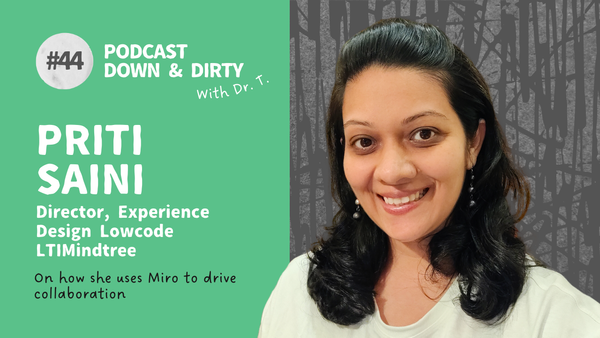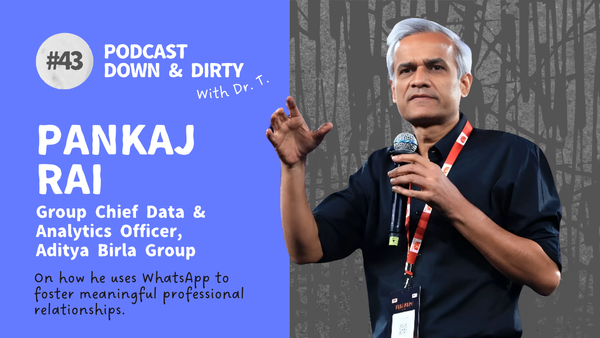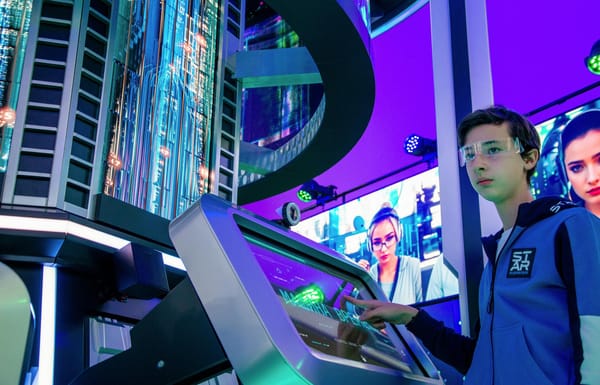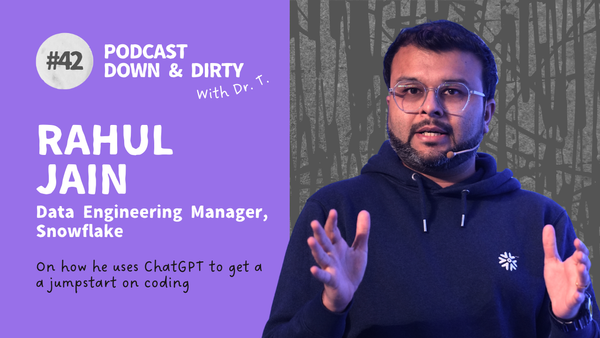💬Why does this freelancer love working from Blue Tokai?
Varun, a freelance marketer based out of Bandra (Mumbai), shares his work-from-café experiences in the city.
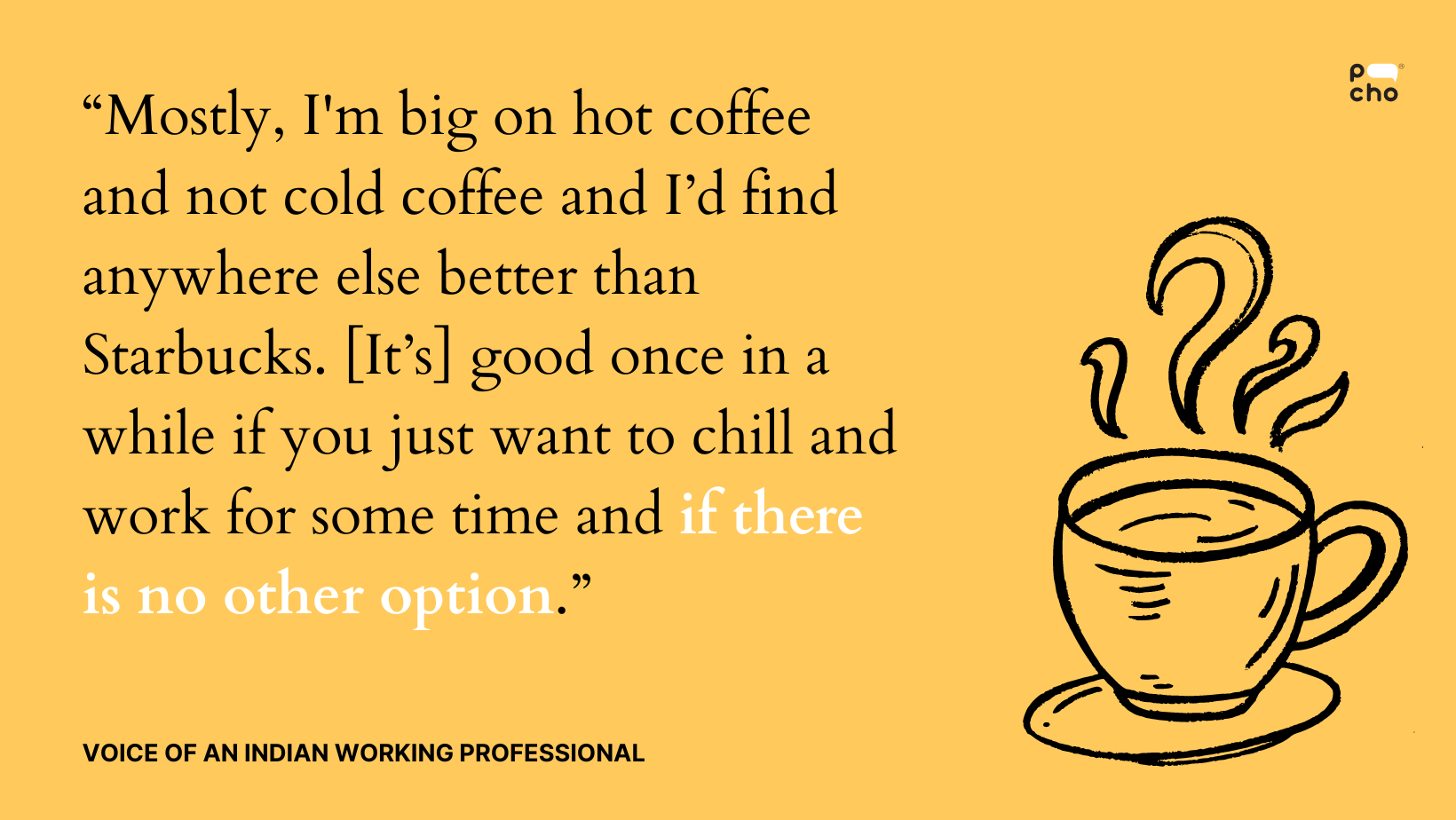
Written by: Swasti Acharya
Originally from Jaipur, *Varun moved to Mumbai in 2018 to improve marketing at a B2B startup. During the pandemic, he switched to a company focused on Ayurvedic products to lead their content team. Currently, he works as a freelance marketer taking up independent projects in his own time.
“I like cafés where there are less people which, in Bombay, is very difficult to find,” Varun mentions. “My favorite is Blue Tokai in Bandra West. It's in a small lane, and I think very few people come there because on a weekday also it's not really crowded.”
Almost every morning around 11am, Varun steps out of his flat and makes his way to Blue Tokai in Khar.
"I usually tell the maid to not make food for me,” because he usually plans meals in advance. “I don't get my food made if I plan to order because or else the food gets wasted.”
Since he rarely eats at home, picking a cafe to work out of is contingent on its quality of food and menu offerings. Second comes ambience. Then, the kind of treatment you get. “The way they speak to you or the way they treat you goes a long way to just [make] you feel like okay, let's go there.”
The outlet is tucked neatly behind the bustling main market of Linking Road. The signature white peacock against the blue background is familiar to visitors who’ve claimed the nearest charging point at their work stations. The bird in Gond and Kalamkari artwork is an ode to sights of coffee plantations in the country.
In the same lane, there is Boojee Cafe, where Varun is parked today. Even though it’s usually more crowded than Blue Tokai, Varun claims that its food compensates for the company.
A match made in COVID19: Remote work and coffee shops
For the first year of the pandemic, Varun interacted with his team on Zoom. Office spaces now made their way into people’s bedrooms, gardens, and cafés. The only constant: a coffee mug on its beloved coaster.
“I have the flexibility of working from anywhere so I like to go and work out of some cafe or something occasionally when I don't feel like working from home so that's another thing,” shares Varun.
Across the globe, WFH (work-from-home) quickly turned into work-from-café as Varun’s mood resonated with many others like him creating a demand for “work-friendly” cafés. A peaceful environment outside the confines of their residence gave professionals a reason to step out of the house once COVID-19 lockdown regulations were eased.
For young professionals lack of space at home also poses a challenge when it comes to setting up a “home office.” For others, eateries became the perfect escape from the commotion at home. For everyone, it returned a sense of 9-to-5 normalcy.
Enter trendy joints in hip neighbourhoods like Bandra that become productive by day and re-productive by night. You walk in for an early lunch and an evening coffee and before you know it, it turns into a rewarding craft beer you grab before returning home.
Blue Tokai’s got what Starbucks has not
Of all the work-friendly eateries, Varun keeps returning to favourites like Birdsong, Bombay Coffee House, and of course, Blue Tokai. They’re tried and tested so he’s confident in what he’s paying for. Unlike his experience at a global coffee brand like Starbucks.
“I think it's too overpriced and even the quality is not that good,” says Varun. “Mostly, I'm big on hot coffee and not cold coffee and I’d find anywhere else better than Starbucks. [It’s] good once in a while if you just want to chill and work for some time and if there is no other option.”
Blue Tokai was born as a roastery in New Delhi’s Said-ul-ajaib area. Since its establishment in 2013, it has managed to tap into the Indian market that is primed to experience high quality coffee. While the initial clientele was limited to expats and high-end consumers, co-founder Matt Chitranjan admits that curious young professionals, like Varun, gradually became regulars at Blue Tokai. BT’s financial success continued through the pandemic and its expansion to countries like Japan promises to render more loyalists like Varun.
Homegrown brands pioneering coffeé culture in India
Interestingly, the cult in ‘culture’ comes from the Latin cultura which refers to the growing and cultivation of land. It’s no surprise that a country built on plantations (albeit tea primarily) is making way for coffee with the entry of giants like Tim Hortons.
Even as the market is brewing for more, experienced international coffee houses like Barista, Dunkin’ Donuts, and Starbucks are no longer dictating the terms.
India’s torchbearer Cafe Coffee Day walked so newcomers like Blue Tokai could run. Today, the stage is set against the backdrop of emerging homegrown labels Araku, Beanly, Koinonia, Subko, and Third Wave. In fact, senior brands like Devan’s have repackaged and redesigned their identity to appeal to a younger generation.
Local cafés no longer need to brew their own coffee if they can just partner with one of these and offer a peaceful environment to work out of.
“There are a few cafes here [in Bandra] that I've tried and I like the food there,” says Varun. “Most of the places… food-wise in Khar, Bandra areas are more than enough, I think.”
With so many options to choose from, and so many cafés popping up around the corner, why would Varun look anywhere else?
*We anonymize participant names to protect their identities and encourage more honest dialogue.
